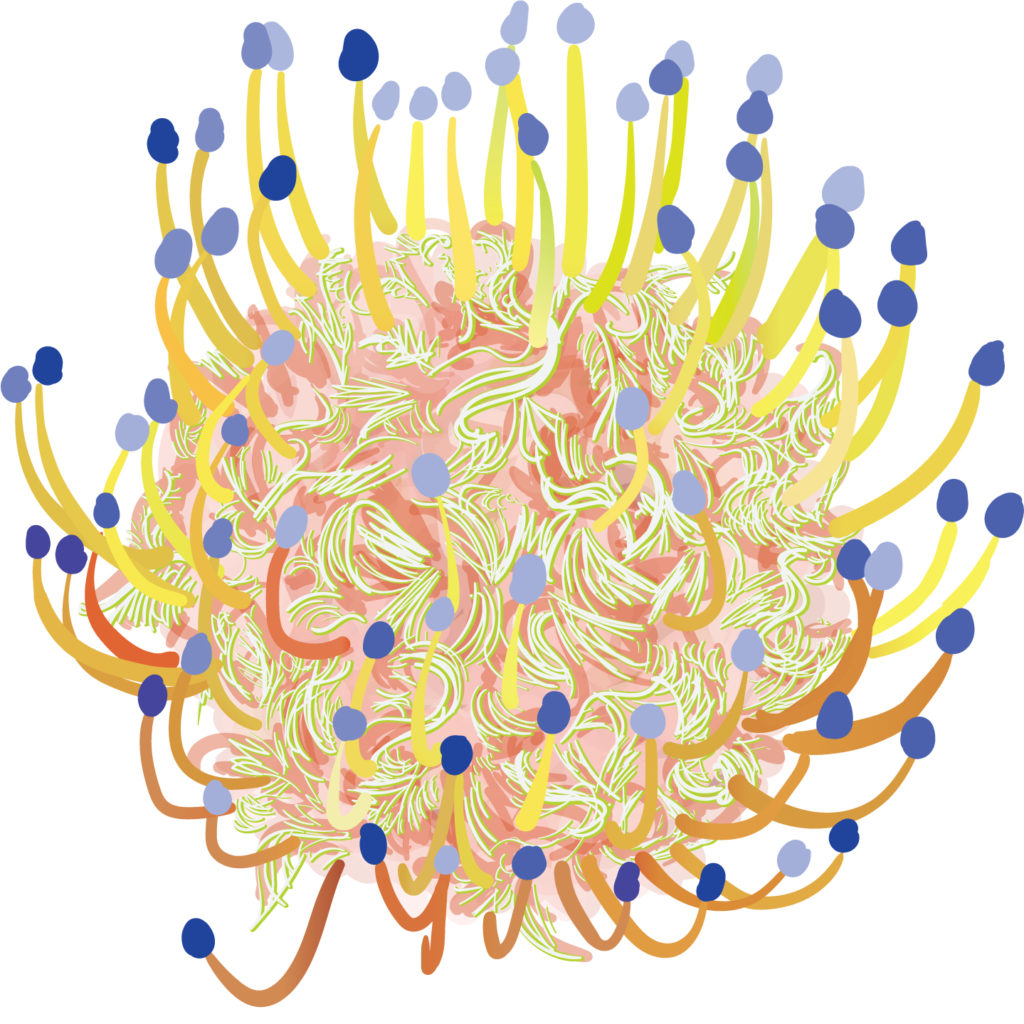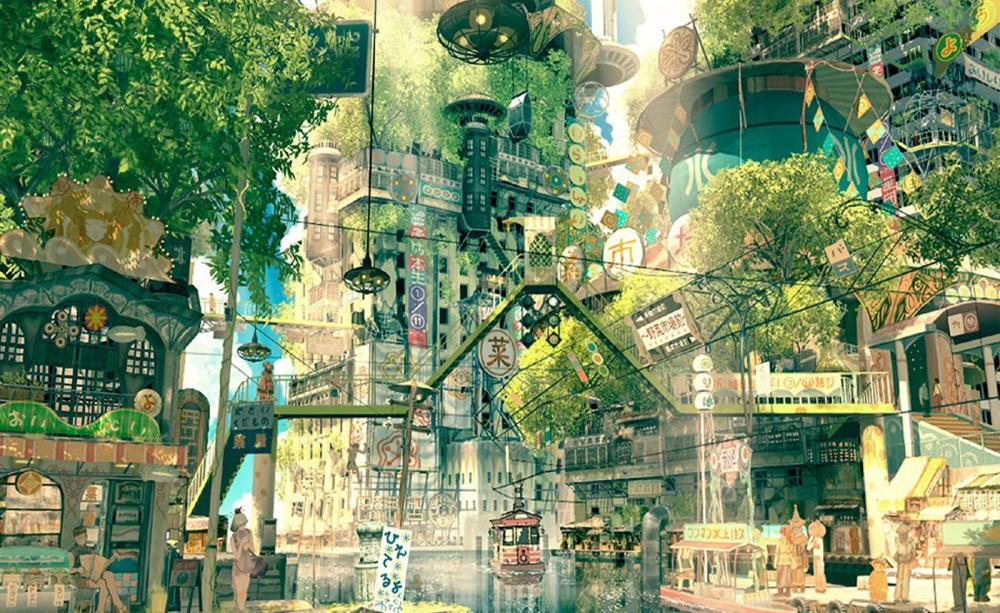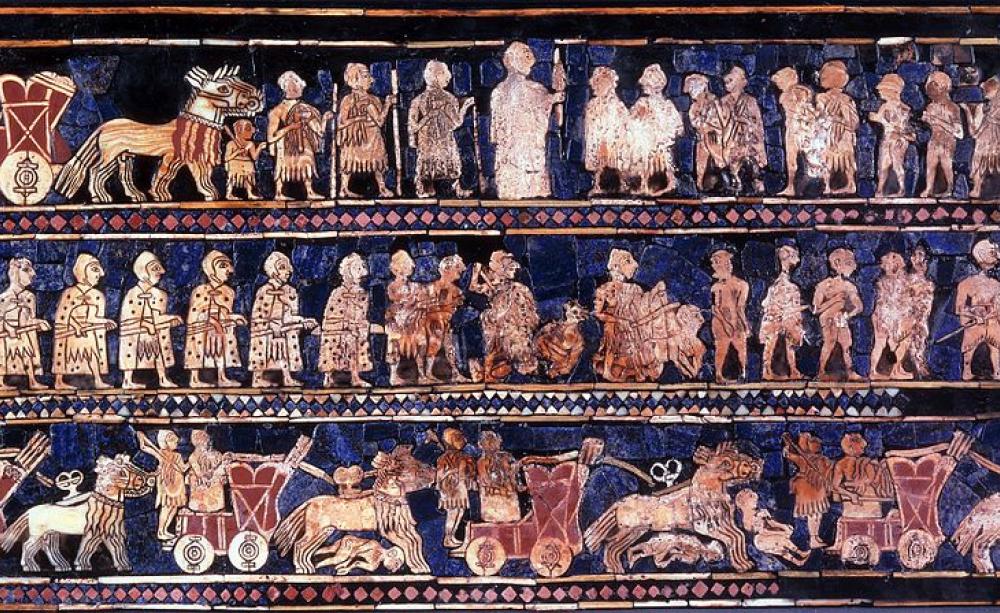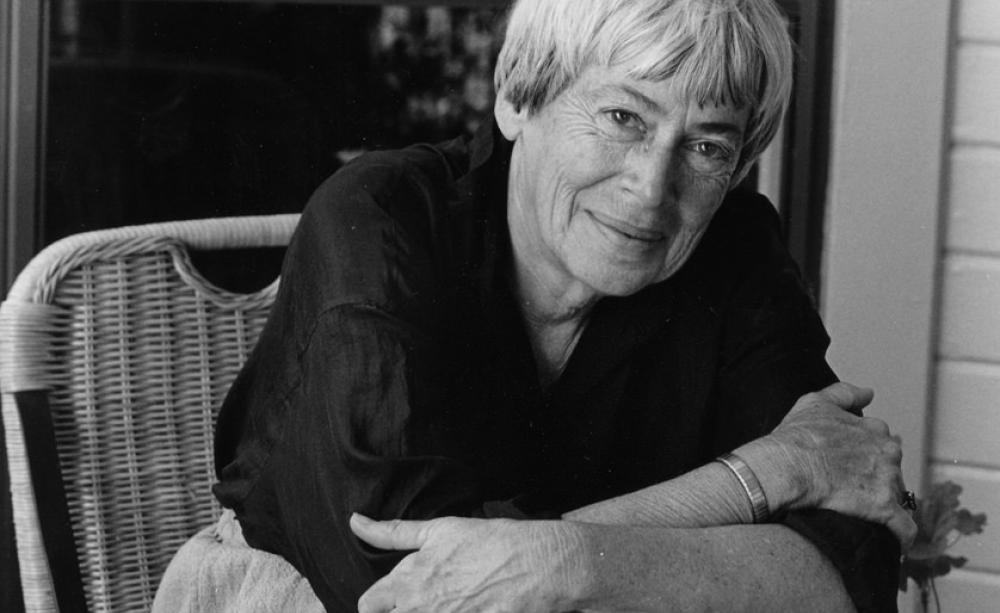Throughout this series, we’ve argued that the best way to address today’s ecological, social, and political crises is to get people together where they live and work to provide resources that people need – eventually building up an alternative political and economic system that can replace the present, failing system. We need to build a democratic, just, and ecological world in the shell of the old.
In the previous installment, we argued that organising on the level of the neighborhood, town, and city is the most strategic approach to this today.
The rise of loneliness worldwide, the centrality of real estate speculation for global economic growth, and the breakdown of many large-scale factories that helped to bring workers together mean that we have to rethink the ways we demand change.
We can build community and force elites to listen to our demands at the same time. Radical municipalism is a project to take direct democratic control over the places where we live.
When we talk to people about this strategy, the same kinds of questions often come up. In this article, we highlight three common criticisms. Each one of them revolves around the complaint that radical municipalism is too local: it can’t deal with the ‘big stuff’.
1. Because of climate change, we don’t have time
Any call for a long-term vision for social change begs the response: the urgency of the present moment means we don’t have the time for the slow work of neighbourhood-level organising.
Impending climate disruption is a ticking time-bomb. Every year we delay will make the future worse. And as a global phenomenon, it takes immediate global action. Strategically, this argument goes, we’re better off pushing our leaders to take strong stances on climate change.
The situation is so dire that the progressive environmentalist website Grist and the socialist magazine Jacobin are publishing pieces asking us to seriously consider geo-engineering and scaling up nuclear energy – all in a bid to give us more time.
For many, the problem of climate change can only be addressed with big stuff: international agreements, renewable and nuclear energy on a massive scale, geo-engineering schemes that involve changing planetary weather systems.
Working with your neighbours doesn’t mean giving up on national electoral politics. It’s all part of the same strategy: building local democracy is the necessary ingredient for taking on the state.
This kind of response is understandable, but puts the cart before the horse. Without a coherent counter-power to corporate control over government, we have no chance of forcing policy into accordance with the public good. We’re relying on the assumption that leaders are kind enough to listen, and that they by themselves have the power to implement needed reforms.
Feet to the fire
Even if we elect the most principled people to power, and even if all politicians were to realise that it’s in their own interest to do everything they can to stop climate change through a ‘Green New Deal’, the system would still be dead against them. You can’t beg a system dependent on extraction, endless growth, and exploitation to change its ways. A systemic restructuring the economy is necessary to stop the ecological crisis.
What is clear is that those in power—the CEOs, the shareholders, the bankers, and the politicians that implement their laws—would suffer greatly from necessary action on climate change.
Government debts would need to be cancelled, the most powerful industries would need to be phased out. Production would need to be reordered along democratic lines, putting people and planet before profit. No matter what, we will still need the kind of popular power that hasn’t been seen in generations to hold politicians’ feet to the fire. It took the combined threats of national collapse, socialist revolution, and a massive workers movement during the Great Depression to get the New Deal. This kind of people power needs to be organized neighborhood by neighborhood, workplace by workplace.
Every step we take towards dual power and democracy from below puts us in a better position to force the hands of government. Extracting concessions from the state and building a new political system from the ground up aren’t opposing strategies—they should go hand in hand.
Climate change and the right to the city
There’s a second answer to this objection. The fight for the right to the city is the fight for climate justice. For example, research on São Paolo in Brazil shows that the fight for affordable housing is a fight against climate change, even if poor people’s movements don’t speak in those terms.
Making the center of the city accessible for everyone to live in and building social and cooperative housing reduces carbon impact. Urban social issues like transit justice are key components of moving beyond fossil fuels. By making the places where we live more equal and democratic, we’re simultaneously fighting for a greener future.
In fact, we’re already seeing that cities and towns with strong social movements are at the forefront of radical and innovative responses to climate change.
What’s more, they’re starting to work together to provide a common front to demand change on national and international scales—the Global Covenant for Mayors for Climate and Energy is already a force to be reckoned with in international climate talks. And cities globally are leading the fight to take the fossil fuel industry to task, even suing them for contributing to climate disasters.
All this comes down to the fact that we can’t actually make the necessarily large-scale changes without taking control over the places where we live and creating the alternatives necessary for a new system. It’s precisely these alternatives that force the hand of the state to act on climate change. They organize people power and show how things could be done otherwise.
In other words, radical municipalism is the best investment against climate change: our power together forces our leaders to act and buys us time, all the while developing a new ecological social order that can replace capitalism.
2. Local activism can’t address global capitalism
A common response to those who work to mobilise their neighbours and create local democracy is that localism can’t scale up. It’s always just stuck back-pedaling, unable to actually change the large-scale problems like predatory trade deals, foreign takeovers, the capacity of finance to make or break whole countries—the stuff that really shapes national decision-making.
Often, these same people argue that, to break out of this pattern, we need to engage with the big players. So they form think tanks, lobby groups, NGOs, and new media platforms, showing up to climate negotiations year after year and putting pressure on politicians through endless petitions. For them, the most important agents of change are well-worded policy briefs, expensive conferences, powerpoint presentations, and 40-page reports.
The key actors of social change aren’t think-tanks or lobby groups: they’re people, and people live and work somewhere. This kind of critique often forgets the fact that all successful international movements of the past were also intensely local.
For example, the labour movements of the 19th and 20th centuries were able to make demands of governments because they were so embedded in people’s day-to-day lives. Historically, unions weren’t just at the workplace; they ran dance halls, classes, cafeterias, and sports leagues.
It was only by broadening their reach to every aspect of life that unions were able to become indispensable to working class communities. This made it possible for them to organise effective strikes and, eventually, mount a significant challenge to their bosses and the state. It’s regular people that are the actors of world-historical changes.
What some people deride as ‘localism’ is actually the very foundation of transformative change.
A plan of action
That said, we shouldn’t forget that, without a long-term vision, a coherent plan of action, and trans-local alliances, every local movement is doomed to become a relic in the town museum.
Keep in mind that capitalism works at scale. That’s the genius of it. Stop one development in your neighbourhood, and investors just move their money elsewhere. Take on giants like Amazon, and they’ll just move to another city. So, in that sense, we agree that local action, on its own, will always fail.
This is why, for radical municipalism to be successful, it requires collaboration at higher level. This July, the Fearless Cities Summit in New York City will bring together municipalist movements around the world to share resources and action plans.
In our own work as Symbiosis, we hope to bring together radical municipalist movements from across North America to form a democratically run network of community organizations that can coordinate strategy beyond the local.
Confederation
In the short term, these kinds of movements are already proving to be a challenge to big corporations. In Seattle, the city council passed a law that would tax big companies like Amazon—money which would then go into subsidies for affordable housing. In Barcelona, the city is turning AirBnB apartments into social housing. Only local, democratic, and people-based movements can force politicians to bring transnational corporations to task. What we need to do now is learn from each other’s victories and work together to scale them up.
In the long term, a system of dual power would transform into what we call communalism or democratic confederalism: an allied network of interdependent communes or regions that work together in a directly democratic way.
On the local level, the neighbourhood assembly makes the decisions and decides the course of action. On a bigger level, these organisations band together in what is called a confederation: a body of recallable delegates with imperative mandates, directly accountable to their communities.
This body would allow communes to exchange resources, support each other, and make democratic decisions. Without this kind of networking, collaboration, and interdependence across borders, local movements are just that: local, isolated, and doomed to fail, again and again. But through international confederation, we can pose a real threat to global capitalism and the ruling class.
3. We can only make real change by taking over the state
For many, the state is the best vehicle for action to fight the major systemic problems of climate chaos, finance capital running amok, and global inequality.
Further, with the growing popularity of Bernie Sanders and Jeremy Corbyn, now seems like a bad time to redirect energy away from national politics. After all, conservative movements thrive off of voter apathy. If you ignore elections, then you cede the ground to the welfare-bashing, poor-blaming, and racist right.
How should radical municipalist movements engage with the state? First, it’s important to reframe the debate away from “should we try to take state power?”.
We’re trying to build democratic institutions that can, in the present, extract concessions from the state. These will inevitably exist within the current (statist) system and leverage available (state) institutions and resources toward that goal.
Eventually, these new institutions will form an ecosystem of dual power that can force a crisis within the state and dissolve its powers into confederal direct democracy. This is not a contradiction, it’s just to acknowledge that the state has embedded itself into almost every aspect of our lives and can’t be abolished in a day.
This process would amount to a fundamental restructuring of the public sphere, from a state—instruments of coercive violence under the control of a ruling class—into a democratic commons, a government from below.
Rewire its institutions
In the meantime, however, we can grow our movement through struggle for important expansions of the public sphere (social spending, halting carbon emissions, public transit) and drawdowns on the most socially and ecologically destructive features of the state (the police, the military, prisons, border security, surveillance).
As we gain greater power to extract concessions from the state through new institutions of communal democratic life, we can use strategic policy changes to improve our position. Non-reformist reforms like nationalized healthcare, job guarantee programs, and public childcare can enable more working-class people to participate in neighborhood organizing and movement work. Putting public funds into cooperative development, social housing, public banking, and participatory budgeting can speed along our transition to a democratic economy. With the support of municipal governments, solidarity economy initiatives developed in our communities can be dramatically expanded. Most importantly, we can secure radical changes to city charters that restructure political authority into direct rule by citizens through confederated community councils and assemblies.
It is never enough to simply “take the state” and wield it as a tool to reshape society, for the state is not a neutral institution to be held by one class or another. At a structural level, the state exists to enforce the will of a ruling elite, who make decisions on our behalf. Even if we replace horrible capitalist ones with working-class representatives of our own, we haven’t assured that the will of the public is governing society, for the public is not itself in power. Empowering ordinary people to have control over our collective future requires fundamentally transforming the way governance works.
This is why building power from below outside of the state is so essential. The mass organization of community councils, assemblies, tenant unions, labor unions, and cooperatives is what can (through its own growth) force governing elites to make the reforms we need right now, while creating the conditions for a more revolutionary restructuring of society.
It’s clear that we can’t depend on an electoral strategy alone to put these ideas into practice. Elections are an important platform to spread ideas and implement our program, but only vibrant social movements can actually hold elected representatives accountable.
What kinds of policies would a radical municipalist movement put on their electoral platform, if they had one? In each case, it helps to ask: how does this policy build popular power? What institutions can we strengthen through public policy to better hold the state accountable?
No matter what the state does, however, it’s crucial that people practice doing politics themselves. Building these kinds of institutions is the antidote to apathy and encourages civic engagement. Through this broader strategy of dual power from the neighborhood on up, we can effectively challenge the state and, at the same time, rewire its institutions—already running through every aspect of our lives—into something new.
Turning local action into global power
It’s easy to criticise everything under the sun as insufficient, not good enough. Organising in your own neighbourhood can sometimes feel distant from the important stuff happening around the world.
But while local action alone is not enough, organising should still be a part of people’s everyday lives: it should be place-based. Fighting for affordable housing means fighting climate change.
Taking on AirBnB or Amazon in your city means struggling against corporate control over politics. Working with your neighbours doesn’t mean giving up on national electoral politics. It’s all part of the same strategy: building local democracy is the necessary ingredient for challenging the ruling class’s grip on government.
How can we solidify these distant, local actions into an intentional power that can take on state, corporate, and global powers? Through learning from each other, networking, forming alliances, and, eventually, confederating. Without a democratic politics of scale, we’ll just stay stuck in the local.
In the next installment of this column, we’ll discuss another common objection—one that has become more and more pressing. Can radical municipalism avoid what we call ‘dark municipalism’: the rise of a fascist or reactionary localist movement that seeks to protect only its own and expel anyone who doesn’t fit the norm.
This article was originally published in The Ecologist.
The Symbiosis Research Collective is a network of organizers and activist-researchers across North America, assembling a confederation of community organizations that can build a democratic and ecological society from the ground up. We are fighting for a better world by creating institutions of participatory democracy and the solidarity economy through community organizing, neighborhood by neighborhood, city by city. Twitter: @SymbiosisRev. This article was written by Aaron Vansintjan (@a_vansi) with contributions by Mason Herson-Hord (@mason_h2).




